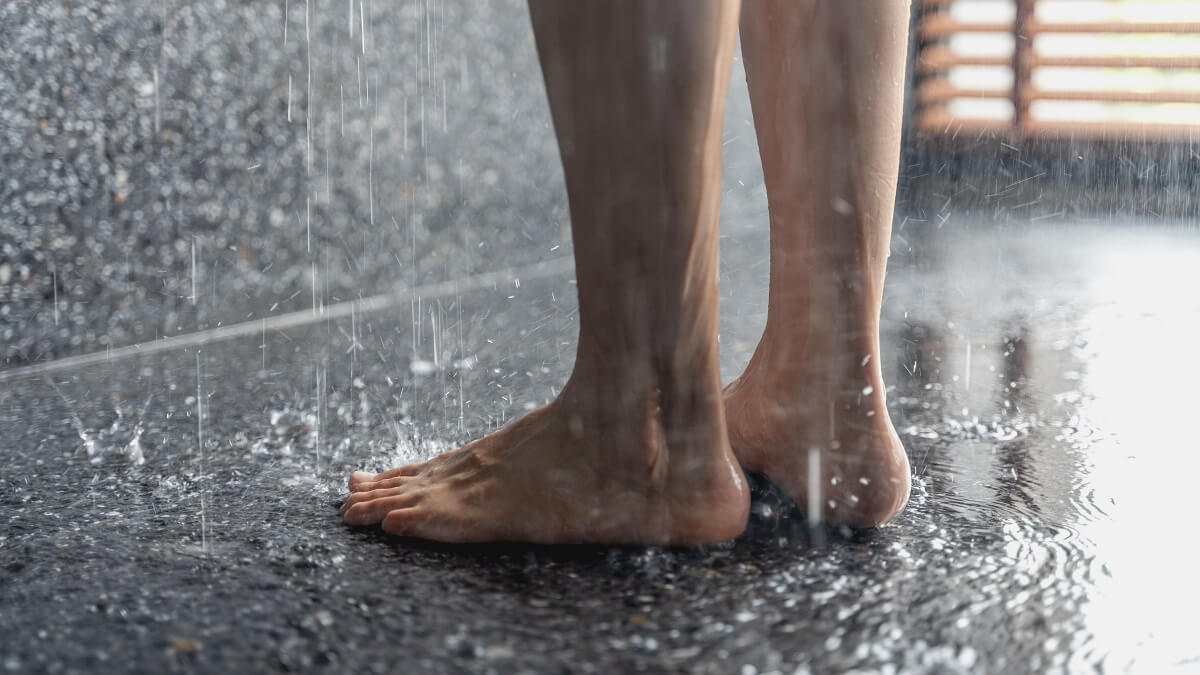We all love a good cleaning shortcut and believe that anything that saves time and effort is a win. But not all cleaning hacks are as helpful as they seem.
While some clever tricks can make your routine easier, others might do you more harm than good. So before you adopt every time-saving tip you come across, it’s worth taking a closer look at which ones truly work and which might not be worth the risk.
You May Like
One such routine that can be a bit of a hassle is keeping our showers clean. It’s a task that, while not particularly enjoyable, is essential for maintaining a hygienic and pleasant bathroom environment.
A recent survey from Drench revealed that a staggering three-quarters of people have tried to multitask by cleaning their showers while using them. This might seem like a clever time-saving hack, but it’s actually a practice fraught with hidden dangers and inefficiencies.
Let’s dive into why this common shower cleaning shortcut might not be as efficient as we think.
1. Exposure to chemicals can harm your skin
When you’re in the shower, your skin is at its most vulnerable. Warm water and steam open up your pores, making it easier for chemicals to penetrate.
If you’re scrubbing away with bathroom cleaners while you’re in there, you’re risking direct exposure to harsh substances. This exposure can lead to skin irritation, dermatitis, and other unpleasant reactions.
Even if you wear gloves for protection, the solution will end up flowing over your feet as you stand in the shower and rinse it away.
2. Fumes are more dangerous than you think
The enclosed space of a shower stall can turn into a chamber of concentrated fumes from cleaning products. These volatile organic compounds (VOCs) are not only unpleasant to smell but can also cause dizziness, respiratory issues, and exacerbate conditions like asthma.
Even natural cleaners like vinegar release strong odours that can be overwhelming without proper ventilation.
3. You could lose your footing and slip
Showers are already a common place for slips and falls, and adding cleaning activities into the mix only increases the risk. Bending, reaching, and scrubbing can lead to loss of balance, especially on a wet surface.
It’s far safer to clean your shower when it’s dry, ensuring you have a stable footing and reducing the chance of accidents.

4. Premature rinsing wastes your effort
If you’re running the shower while trying to clean it, you’re likely just washing away the cleaning solution before it has a chance to do its job. This not only wastes the product but also means you’ll end up using more of it to achieve the desired results.
It’s more efficient to apply cleaners to a dry shower, let them sit and work their magic, and then rinse away.
5. You could easily overlook dirt and residue
Steam and water can obscure your vision, making it difficult to see stains and spots that need attention. Without glasses or contacts, you might miss areas that require a bit more elbow grease.
In contrast, a dry, open shower allows you to see clearly and ensure you’re cleaning every nook and cranny.
6. Focus is essential for stubborn stains
Shower stains can be persistent and require a dedicated effort to remove. If you’re multitasking by showering and cleaning at the same time, chances are you’re not giving the cleaning the attention it deserves.
Setting aside time specifically for shower cleaning ensures you can focus on the task and do a thorough job.
In conclusion, while it might seem efficient to clean your shower while you’re in it, the practice is neither safe nor effective. By separating these tasks, you protect your skin, breathe easier, reduce the risk of slips, and ensure a more thorough clean.
So next time you’re tempted to scrub while you shower, remember that a little extra time spent cleaning safely can save you a lot of trouble in the long run.
We’d love to hear from you, our YourLifeChoices readers. Have you ever tried cleaning the shower while using it? What are your tips for keeping the shower spotless without compromising safety? Share your thoughts and experiences in the comments below.
Also read: The bathroom habit you might be doing wrong, according to doctors

